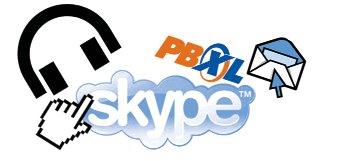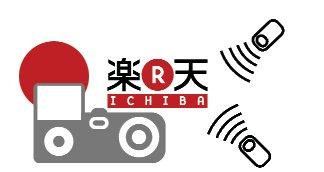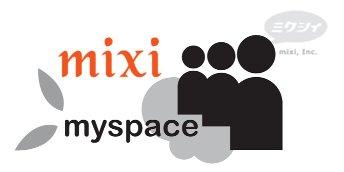IT: What To Watch Out For
By Anna Kitanaka
Japanese consumers have been slow at catching onto IT trends, with a monopoly from big name brands like Yahoo!, Rakuten, Mixi and YouTube taking places in the top ten most visited sites in Japan. However, slowly but surely, smaller IT companies are hammering their way through, all competing for a slice of the pie. We take a look at the established IT companies’ methods of surviving in a competitive and fluctuating market, plus the up-and-coming companies’ innovative ways of gaining a share of the market.

Google • MSN • Yahoo!

On January 3, 2000, at the height of the dot-com boom, Yahoo! Stocks closed at an all-time high of US$118.75 a share. Just 16 days later, shares in Yahoo! Japan became the first stocks in Japanese history to trade at over ¥100,000,000. Since then, Yahoo! Has remained predominantly the number one search engine in Japan. However, Google is of course hot on their tails with over half of the share of the world’s online searches and there are even rumors of a Google mobile phone, aptly named the Gphone. Ask.jp, the Japanese branch of Ask Jeeves, has partnered with Walt Disney Japan to include an Ask.jp search bar at the top of the Disney website, gaining them valuable customers in a competitive search engine market. Ask have included a blog search for just the Japanese market, capitalizing on the popularity of blogging in Japan.
Baidu.com, a Chinese search engine which boasts a 60% share of the Chinese market and is the fourth most trafficked site in the world, are looking to Japan as an ‘ideal’ next step for expansion.
IP telephony • Skype • PBXL • Centrex

Launched in 2003, Skype has changed the way people use the internet—but more importantly, it has enabled users to cut costs and revenues from over-charging telephone companies. Of VoIP (Voice Over Internet Protocol) services, Skype is the most successful of its kind. However, Rakuten have now acquired a 54% stake in Japan’s IP phone company Fusion Communications. But this all remains in the consumer section—bad lines and crackling make it unsuitable for business customers. Cisco are working with a startup company in Japan called PBXL to reach the foreign business market here. They are looking to gain customers from competitor Centrex by lowering costs and enabling add-on features such as web based soft-phones and enabling the same number to be used in any location. The future of IP telephony looks set to be voice recording (so that telephone conferences can be recorded) and video features.
Shopping • Rakuten • Coneco

Rakuten remains very much the dominant company in internet shopping in Japan and is ranked in the top ten for the largest internet companies in the world. From managing a professional baseball team to increasing their stakes in TBS (Tokyo Broadcast Systems), Rakuten are going from strength to strength as a leading internet player. Rakuten’s online shopping business, Rakuten Ichiba, is the largest online shopping mall in Japan with over 18 million products from over 18,000 merchants. Another company, Venture Republic, which owns online comparison shopping sites such as Coneco.net and, travel.co.jp is competing for a share of Rakuten’s customers. Currently, they have 5.6 million unique users to their sites. To get ahead, they have introduced usergenerated services such as video-reviews and real cash incentives for reviews. They also avoid losing customers to Google by manually laying out the design of their products for easier searches.
SNS • Mixi • Myspace • Sexi

Mixi has remained the dominant leader in the Japanese market for social networking sites (SNS). However, they may start feeling the effects of US News Corp, (Myspace’s parent company) signing an agreement with Softbank to begin a Japanese Myspace last year. The biggest difference between the two SNS sites is that Myspace is much more customizable so users can add images, music and videos, but Myspace still have their work cut out. Industry experts say that first movers tend to have a greater advantage in this type of service and switching costs for users are pretty high, even if they do offer more services. Another Mixi competitor GREE, who actually started up before Mixi (both sites look very similar), were trying to stay ahead by entering the mobile SNS market and signing an agreement with AU KDDI.
Unfortunately for GREE, Mixi quickly followed suit and now Myspace are also trying to enter the mobile SNS market.
Another site spawned off the Mixi/GREE model is adult SNS site Sexi. Not only is the name similar to Mixi, the look of the site and its uses are an almost exact replicate. Sexi enables users to network with people in a sexual way, allowing them to find people with similar fetishes and desires.
YouTube • Yahoo!

Although YouTube remain strong in online videos, they faced difficulties entering the Japanese market due to copyright infringment complaints from the Japanese media. Users found many Japanese videos suddenly being deleted, limiting the choice of videos offered in Japanese language. They resolved this by an agreement with several copyright holders to share ad revenue in exchange for posting copyrighted material. YouTube have now managed to enter the market by fully translating and localizing their services for the Japanese market. Mixi, dominant as a social networking site, is hoping to compete with YouTube in Japan by adding a video-uploading service. Myspace also offers video uploading services which means that if Myspace takes off in Japan, Mixi will face strong competition to stay ahead of the game. Yahoo! Has recently announced that they plan to launch an internet portal for televisions that can handle high definition (HD) programming as early as next March. Earlier this year, rival internet portal service acTVila announced that they were going to offer HD programming on demand. AcTVila is backed by the government and Sony, Matsushita Industrial Electronic, Sharp, Hitachi and Toshiiba which analysts say shows that they are driven by a desire to sell more TVs rather than make money off the distribution of content. Yahoo! May face challenges finding consumer electronics companies to back its service as well as the problem of large broadband internet providers who are also beginning to offer download services of their own. JI
J@pan Inc Magazine, Nov/Dec 2007





